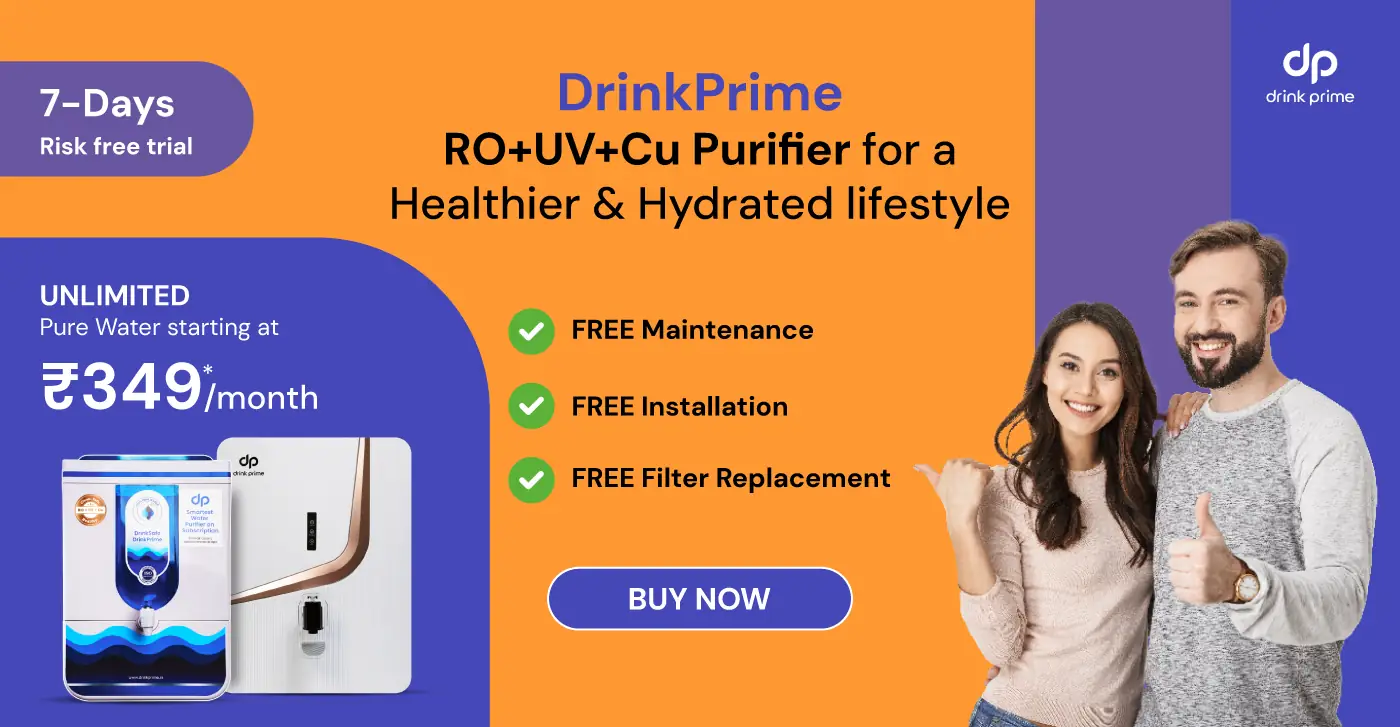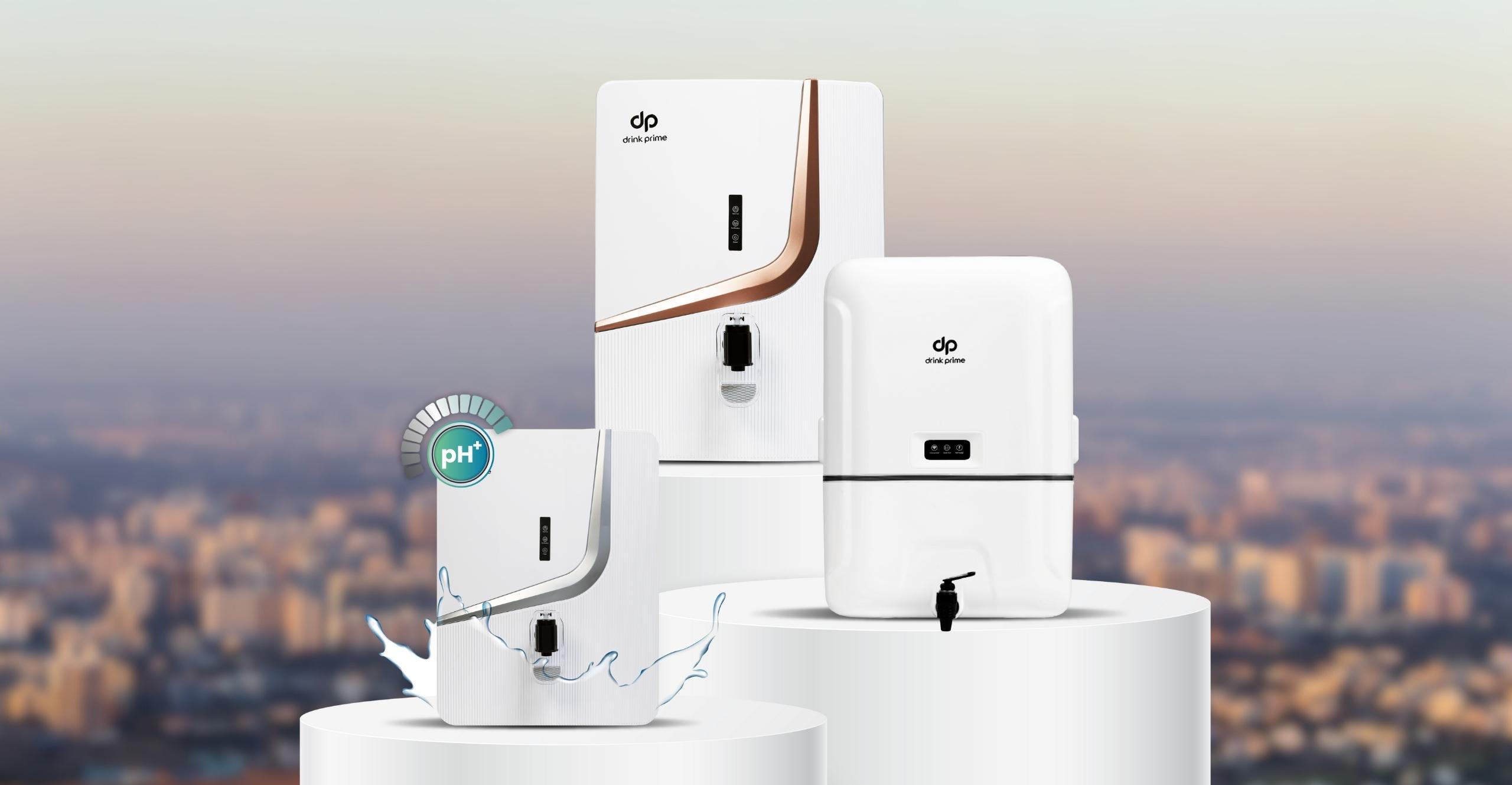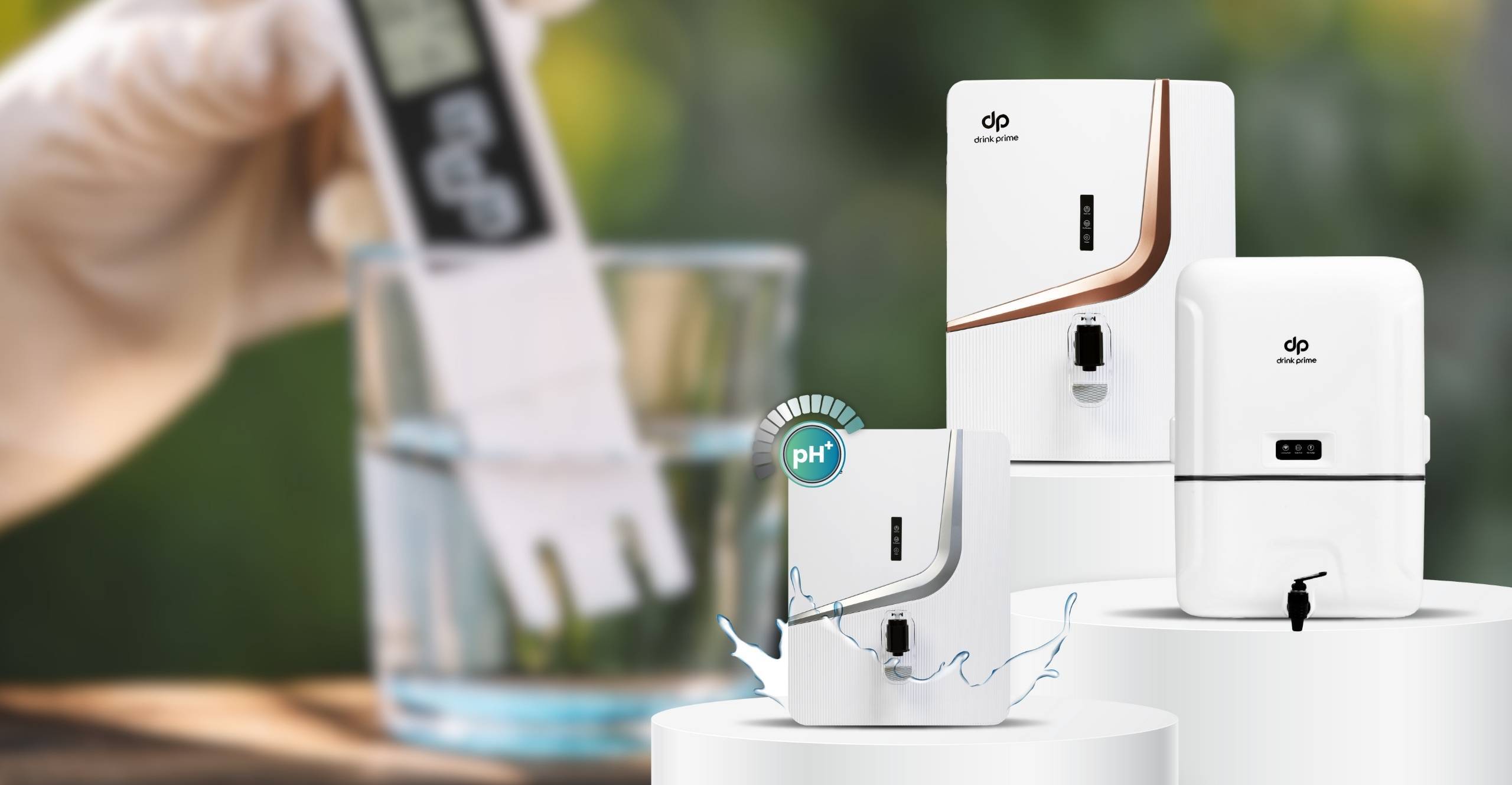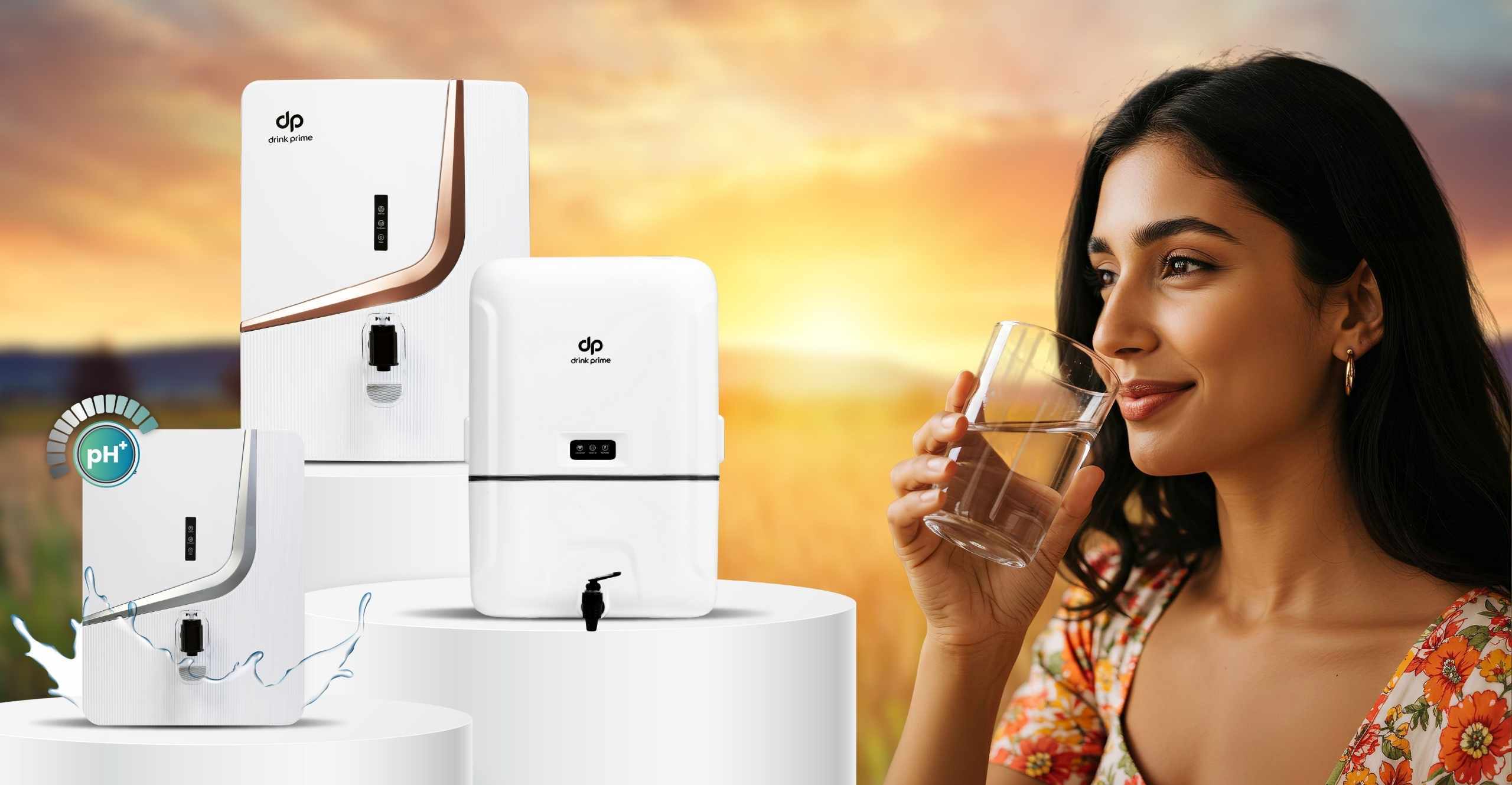Safe and clean drinking water is not just a need, but it is a daily essential that completely impacts your family’s health and well-being. But with so many water purifier options in the market today, there is one common question that is often asked:
Should you choose an electric water purifier or a non-electric water purifier?
When it comes to both, they serve the same purpose, which is providing clean water, and they work differently and suit different kinds of households and water sources. Electric water purifiers completely rely on advanced water purification technology to remove dissolved impurities and microbes, while non-electric ones are very simple, budget-friendly, and don’t rely on power completely. Besides, choosing between the two can be a challenging task too, like considering factors such as water quality, maintenance, cost, and convenience, which play a role. In this blog, we will explore how electric and non-electric water purifiers differ from each other, which one works better for Indian urban households, and is more accessible for everyone.

Understanding Electric and Non-Electric Water Purifiers
1. Electric Water Purifier
Electric water purifiers are the water purifiers that rely on an electricity supply, UV lamps, sensors, and sometimes storage tanks as well. Moreover, they typically offer advanced or multi-stage water purification technology like reverse osmosis to eliminate dissolved salts, a UV lamp to kill microbes, and activated carbon to remove odor and boost taste from the water.
2. Non-Electric purifiers
Such a water purifier works without power and typically comprises simple filtration cartridges, and they rely on gravity, pressure, or simple filter media like ceramic, carbon, sediment, and they do not require any active pump or UV lamp.
An Overview Pros and Cons about the Electric Water Purifier
When it comes to electric water purifiers, they come with several advantages that make them a preferred choice for many Indian households. Such a water purifier comes with high purification capabilities like RO, and UV that work together to remove all the dissolved salts, heavy metals,
Bacteria and other harmful contaminants from water. These water purifiers are especially well-suited for high-TDS or hard water areas, such as homes that completely rely on borewell or mixed water sources, where regular filters may not be enough to ensure purity.
Additionally, most electric water purifiers come with built-in storage tanks and smart automatic controls, which include features such as shut-offs, filter change indicators, and water level sensors.
Understanding the Non-Electric Water Purifiers
Non-electric water purifiers come with their own set of advantages, hence making them an ideal choice for many homes, especially where water quality is already decent. One of the biggest benefits is that they don’t depend on electricity, allowing them to work efficiently in any location, even during power cuts or in areas with limited access to electricity.
They are also more affordable and easier to maintain, as they have fewer moving parts with minimal components that require replacement or servicing. Beyond that, non-electric water purifiers are eco-friendly and highly portable, consuming no energy and being easy to move or install whenever needed.
Most importantly, they are perfect for homes that receive treated or low-TDS municipal water, as they effectively remove basic impurities without the need for advanced RO or UV lamp purification.
Which works better and when?
1. Choose Electric
An electric water purifier is an ideal choice if your water source has high TDS levels, contains heavy metals, or comes from a borewell with uncertain quality. Moreover, these water purifiers are completely designed to handle tough contaminants that simpler systems can’t remove.
They are also ideal for people living in cities where the water supply is treated but still inconsistent, often fluctuating between contamination and hard water. If you don’t mind paying a higher price and scheduling period servicing to maintain peak performance, and you have a reliable power supply at home, an electric water purifier offers the perfect solution of efficiency and convenience.
2. Choose Non-Electric
A non-electric water purifier is an ideal solution if your water supply comes from a treated municipal source and has low TDS levels, meaning it’s already relatively clean. Such water purifiers are especially suitable for homes where electricity is unreliable or for those who prefer a low-maintenance, budget-friendly solution. Since they don’t rely on power and have simple filtration systems, they are easy to use and cost-effective to maintain. Basically, if you have a smaller household or only modest water purification needs, a non-electricity water purifier can efficiently provide safe and clean drinking water without the extra expense or complexity of electric models.
Why Choose DrinkPrime?
Hard water may look harmless, but the excess minerals it contains can dry out your skin, damage appliances, and make water taste off. DrinkPrime offers an advanced purification system designed to handle hard water. Making use of RO purification and smart filtration, it effectively removes hardness-causing salts and impurities, hence making sure that every drop is safe, clean, and healthy.
With DrinkPrime, you can enjoy the benefits of a high-quality electric water purifier without any burden. Also, this subscription-based model includes free maintenance, eliminating the hassle of scheduling and paying for regular servicing. Plus, DrinkPrime’s IoT-enabled technology gives you real-time data on your purifier’s performance and filter health, making sure that there is complete transparency and control.
Summary
In conclusion, choosing between an electric and non-electric water purifier completely depends on the water source, household needs, and lifestyle preferences as well. If your water comprises a high amount of TDS level, which generally comes from a borewell, then opt for a water purifier that provides complete advanced purification and smart monitoring technology, which is DrinkPrime.
But on the other hand, if your home receives treated municipal water, then go for a non-electric water purifier that can cater to your needs effectively. At the end of the day, what matters a lot is making sure that your family drinks safe, clean, and healthy purified water.



